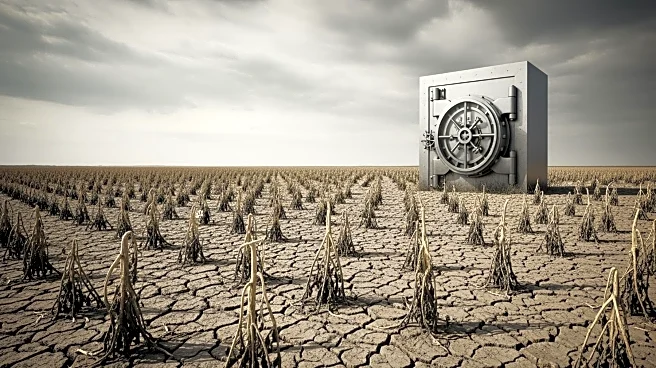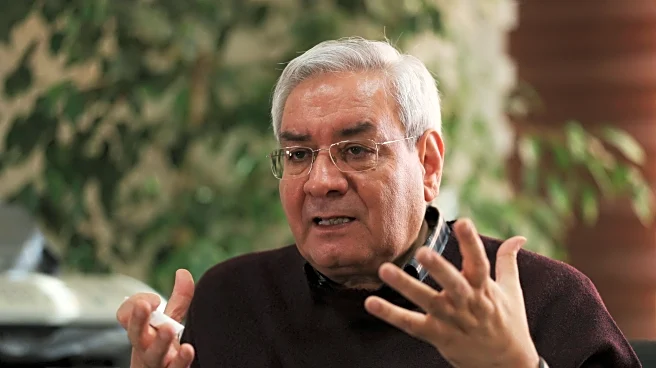What's Happening?
Africa's food insecurity is critically linked to inadequate funding for agriculture, reluctance from banks to finance agricultural projects, and negligible foreign aid. Professor David Luke from the London School of Economics highlights the lack of significant
investment in food production, noting that few African countries meet the agreed target of spending 10% of their annual budget on agriculture. Banks are hesitant to lend due to high rates and issues with communal farmland as collateral. The situation is exacerbated by rich countries subsidizing agricultural products, making it difficult for Africa to compete.
Why It's Important?
The issue of food insecurity in Africa is significant as it affects millions of people, impacting nutrition and economic stability. The lack of investment in agriculture hinders the continent's ability to produce food at scale, leading to reliance on imports and vulnerability to global market fluctuations. Addressing these challenges requires strategic financial support and policy changes to boost agricultural productivity and infrastructure. The situation highlights the need for international cooperation and investment to support sustainable agricultural development in Africa, which could improve food security and economic resilience.
What's Next?
Efforts to address Africa's food insecurity will likely focus on increasing investment in agriculture, improving rural infrastructure, and enhancing support services for farmers. Governments may need to prioritize agricultural funding and create favorable conditions for bank lending. International organizations and foreign investors could play a role in providing financial aid and technical assistance to boost agricultural productivity. The success of these initiatives will depend on collaboration between African governments, financial institutions, and international partners, with potential impacts on food security and economic growth.
Beyond the Headlines
The challenges of food insecurity in Africa reflect broader issues of economic inequality and the impact of global trade policies on developing countries. The reluctance of banks to finance agriculture highlights systemic barriers to economic development, which may require policy reforms and innovative financial solutions. The situation underscores the importance of addressing climate change and its effects on agriculture, as well as the need for sustainable practices to ensure long-term food security. These issues may prompt discussions on ethical and equitable approaches to global trade and investment.















